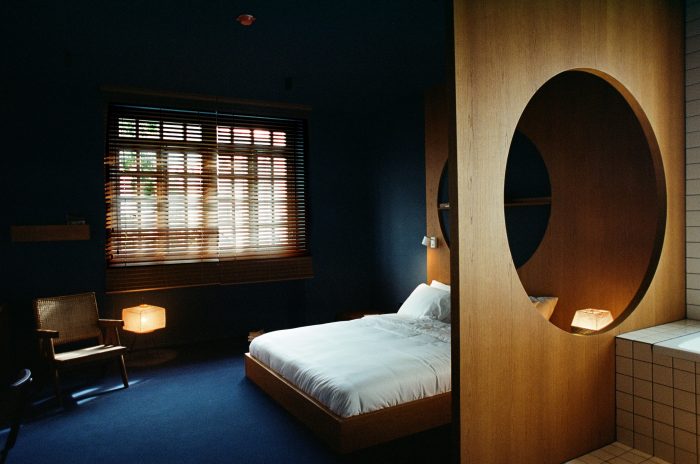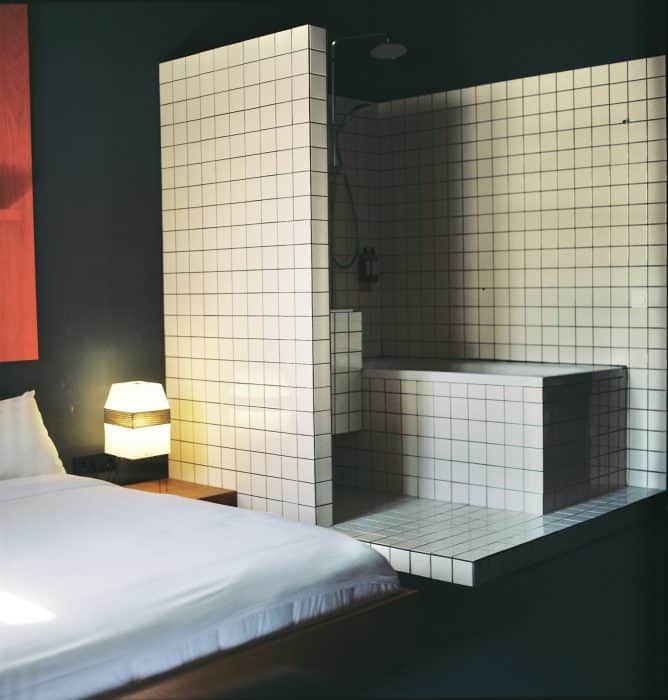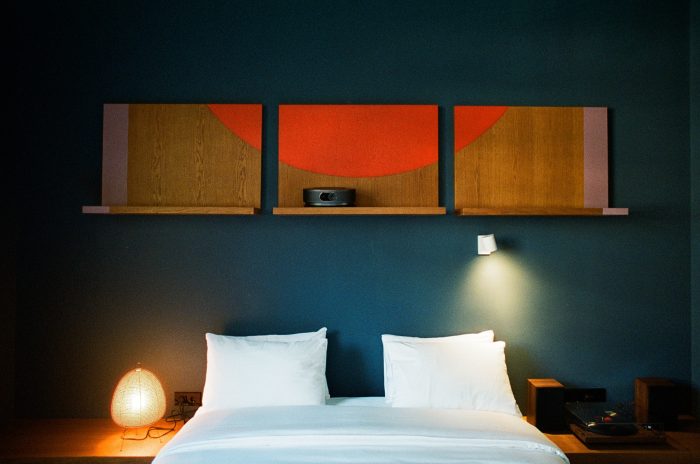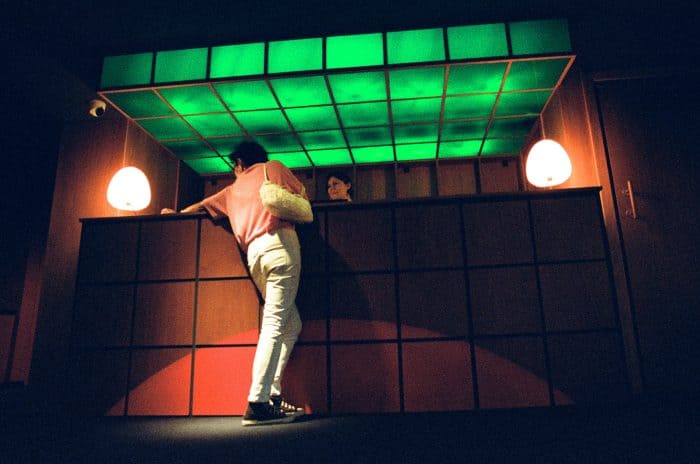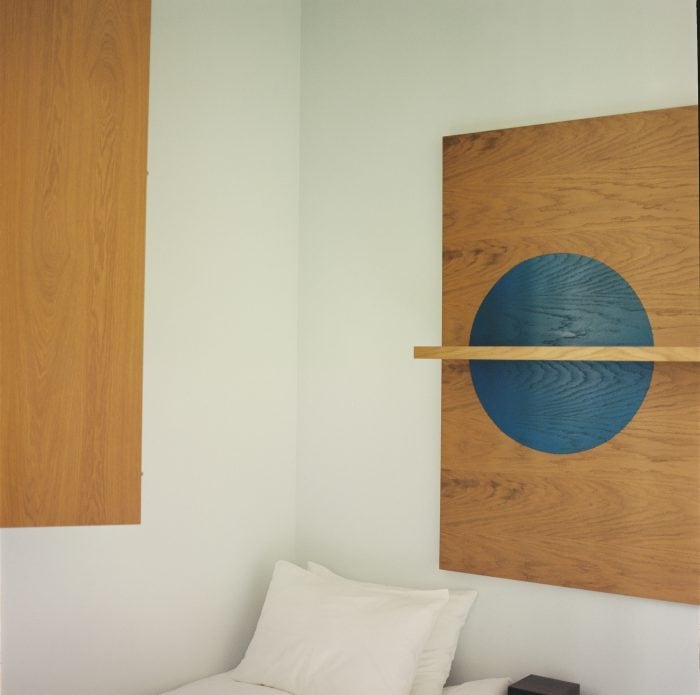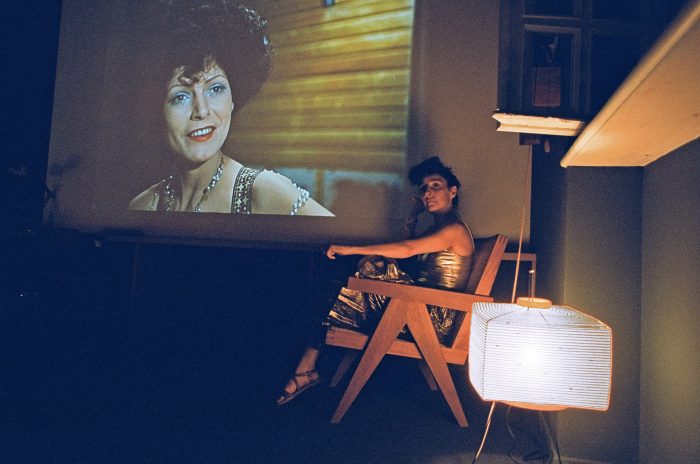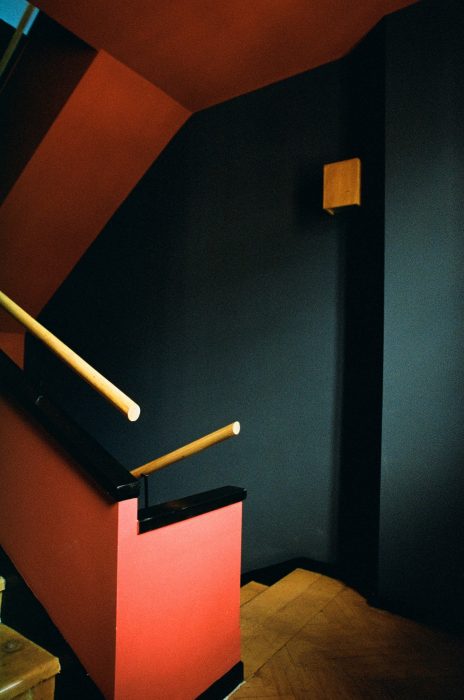Blueberry Nights.
Tucked into a secret corner of Tbilisi’s Vera neighbourhood lies the city’s most cinematic boutique hotel.
“One of the most unique things about Blueberry Nights is the use of projectors in the rooms,” Sandro Takaishvili tells me one sunny afternoon in Tbilisi. “I don’t know why other hotels have not come up with the idea. I searched on Google and couldn’t find anywhere in the world that has projectors instead of televisions.”
It is baffling when you think about it. With more than 700,000 hotels in the world, collectively home to 17.5 million guest rooms, it took 35 years of travel and a trip to Tbilisi—the capital of a country the size of Tasmania that most people can’t find on a map—before I got to bed down in a room with a projector rather than the ubiquitous TV.


Nestled behind the courtyard of the restobar, Lolita, in style-centric Vera, Blueberry Nights is a metaphor of sorts for the city itself. Tbilisi might be small and hard to find on a map but it’s a place of great artistry and innovation, and home to a new breed of Georgians who seem particularly adroit at thinking outside the box. As an architect, photographer, filmmaker, occasional DJ and now hotelier, Takaishvili sits at the forefront of this burgeoning creative vanguard.

The 16-room hotel takes its name from the 2007 Wong Kar-Wai film, Blueberry Nights. Crossing the threshold, you enter a compact world of cinematic fantasy, beginning a dark blue lobby that resembles the foyer of a movie theatre. Shafts of light from cleverly positioned spots give the space its moody feel, while squares of joinery along the back wall showcases rare books and objects. Other elements, if you know what to look for, recall the films of David Lynch and Stanley Kubrick.
Takaishvili describes the design as the culmination of his “entire life’s consumption of film.” The nods, though, are subtle. You get a feeling from Blueberry Nights rather than overarching themes. “What I most wanted to come out of this space is something I love to feel in life: the feeling of being in a movie. Nothing too obvious or straightforward, where everything feels both familiar and otherworldly at the same time.”


Inspiration was also drawn from the nautical world: staff wear sailor uniforms, while round windows and openings resemble the portholes of a ship. “I also love the simple, geometric forms of mid-century architecture. And Japanese style—you can probably see that here too.”
Guest rooms feature long desks with Pierre Jeanneret chairs, low-slung beds and Noguchi paper lamps. There’s also a minibar, a turntable and an eclectic mix of vinyl. Carpet and walls are dark blue except for the wall in front of the bed, painted white for the projector. It’s incredibly simple to use, connected to Netflix and the arthouse site, Mubi. Some rooms feature a bathtub set within a raised niche of square white tiles. It reads like minimalist sculpture—or something by Kubrick—a striking walnut room divider cut with a giant circle separating it from the bed.


Thought has gone into the selection of vinyl in each room. “I love rock music but I haven’t included it here as it’s not right for the mood of the hotel,” he says. “There’s a mix of genres from jazz, depending on the kind of jazz, to experimental music, ambient electronic music and hip hop. I’m also adding books of poetry, cinema and photography, and am planning to make a bigger library of books and vinyl in the lobby so people can take what they want to the room.”
While there’s no in-house restaurant, there is direct access to neighbouring Lolita via a very pretty courtyard, open for breakfast, lunch, dinner and banging cocktails seven days a week. And if you find yourself, like me, tucked up in a bathrobe watching Sofia Coppola’s Marie Antoinette but dreaming of a cheeseburger, just call down to reception and one of the in-house sailors will order from Lolita and deliver to your room—you won’t even have to hit pause. When you are ready to get out and explore Tbilisi, the hottest galleries, concept stores, wine bars and restaurants are a just a stroll away.
Photography: Sandro Takaishvili

